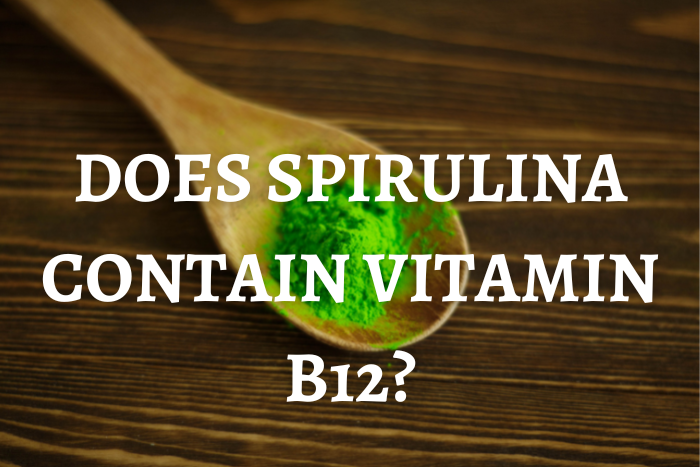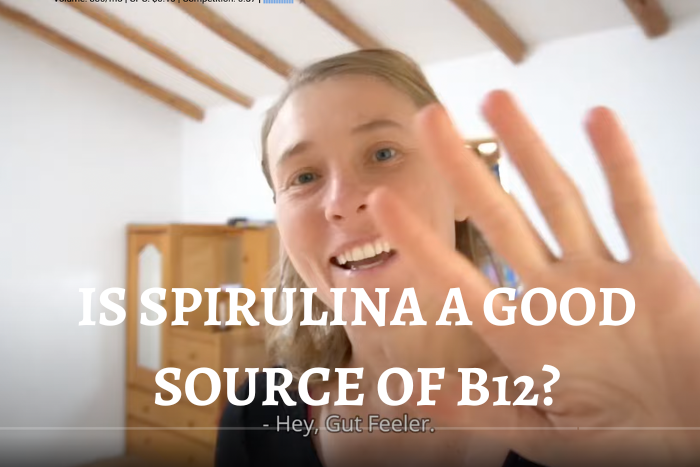
The short introduction to Spirulina
Spirulina is cyanobacteria. It belongs to the kingdom Monera and division Cyanophyta.
Spirulina has been consumed as food for ages.
This blue-green alga is a nutraceutical food which means that Spirulina has healing properties too.
Spirulina is a source of proteins and vitamins, notably vitamin B12 and provitamin A( β-carotene), and essential fatty acids like γ-linolenic acid (GLA).
Spirulina is exceptionally rich in rare vitamin B12 (Cobalamin), which is hard to obtain from vegetable sources. Spirulina contains 250 percent more vitamin B12 compared with beef liver. A single serving of alga exceeds the RDA(Recommended Daily Allowance) of 1.5 to 3mg daily.
Credible sources about existing vitamin B12 in Spirulina
Spirulina has been known for hundreds of years. It was a natural food source for Aztecs and people in Africa or Mexico who consumed this alga for ages.
Nowadays, when soil is depleted, and it is not easy to get nutrients from food, alternative sources such as Spirulina become a sensation and are put o the spotlight.
Christopher Hills was one of the first people who grew, promoted, and used Spirulina intensively.
Along with him, other entrepreneurs spread the word about blue-green algae that can change the world, escaping hunger and malnutrition.
Robert Henrikson from Ronore Enterprises, Inc.,now from Earthrise company, his coauthors, and colleagues; Wendy I. Fulcher, author of The Whole Truth about Spirulina, Jack Joseph Challem, Spirulina What It Is…The Health Benefits It Can Give You, and authors of book with comprehensive scientific discoveries about Spirulina, Spirulina in Human Nutrition and Health, M.E.Gerschwin and Amha Belay are ones who know how valuable Spirulina is as nutraceutical food and nutrition source.

Besides books, another excellent source for scientific information is PubMed.gov. There are plain facts, nothing more.
I guess that it is the most important measure to decide what is real and what is not is to look at facts, evaluate them, and make decisions.
Does Spirulina contain vitamin B12?
Yes, Spirulina is rich in vitamin B12, the so-called Cobalamin.
Spirulina is an excellent source of vitamin B12. These studies in 2019 show that Spirulina contains vitamin B12 and is a great bioavailable vitamin B12 intake for vegans.
Why do vegans need vitamin B12?
Vegans do not eat food from animal sources. The deficiency of vitamin B12 can lead to
- Nerve degeneration
- Pernicious anemia
- Premature senility
- Fatigue
- Mental illness resembling schizophrenia
What do scientists write about Spirulina and vitamin B12?
Scientists and editors of the book Spirulina in Human Nutrition and Health, M.E.Gershwin and Amha Belay, point out studies that show how valuable Spirulina is as a nutritional source and nutraceutical food.
Early interest in Spirulina was focused mainly on its potential as a source of protein, vitamins, especially vitamin B12 and provitamin A(β-carotene), and essential fatty acids like γ-linolenic acid (GLA).
Recently more attention has been given to the study of its therapeutic effects, which include the reduction of cholesterol and nephrotoxicity by heavy metals, anticancer properties, protection against radiation, and enhancement of the immune system.
Spirulina also possesses other biological functions such as antiviral, antibacterial, antifungal, and antiparasite activities.
M.E.Gershwin and Amha Belay, Spirulina in Human Nutrition and Health, 228
In the same book Spirulina for Human Nutrition and Health, coauthors Meltem Conk Dalay and Guven Ozdemir explain Spirulina’s antibacterial activity.
These scientists mention vitamin B12 in Spirulina when they describe how Spirulina shows antimicrobial pursuit.
Spirulina contains vitamin A, important in preventing eye diseases; iron and vitamin B12, useful in treating hypoferric anemia and pernicious anemia; γ-linolenic acid, appropriate in treatment of atopic child eczema therapy, to alleviate premenstrual syndrome, and in immune system stimulation.
M.E.Gershwin and Amha Belay, Spirulina in Human Nutrition and Health, 247
Why do I show this information regarding vitamin B12?
The reason is simple. When I looked for facts about B12 in Spirulina online, I saw only statements that tell that Spirulina does not have B12. They call vitamin B12 pseudo-cobalamin. According to them, this form is unsuitable for humans. Vitamin B12 from animals is a better option.
It prompted my curiosity, and I searched over all books that I have on Spirulina. Doctors and scientists pointed out that Spirulina contains B12.
The last book was Spirulina in Human Nutrition and Health. I bought this book on Amazon when I needed the newest findings about this alga.
The book was expensive, something about 80-90 dollars. What I found in it exceeded all my expectations. Coauthors mentioned vitamin B12, which is in Spirulina.
Why do all these scientists point to different results? I found in books that Spirulina has vitamin B12. I do not believe that all these authors would be wrong, do you?
This video below explains why Spirulina poses a danger and why studies show different results.

Spirulina is an undiscovered gem. Why? This alga can prevent all problems associated with malnutrition, hunger, heavy metal poisoning, viruses, and microbes.
Nutrients in Spirulina strengthen the innate immune system, act as antioxidants, help with diabetes, and prevent aging.
Wrapping up
Without a doubt, Spirulina is an excellent nutrition source that could sustain humans for a long time. How long? 15 years or more.
Spirulina can help end the world’s hunger and malnutrition if the right forces unite and solve logistic and manufacturing problems.
Spirulina contains vitamin B12 along with other valuable ingredients. Choosing organic Spirulina and consuming it daily will give you all the nutrition you need. Is it wonderful, is it not?